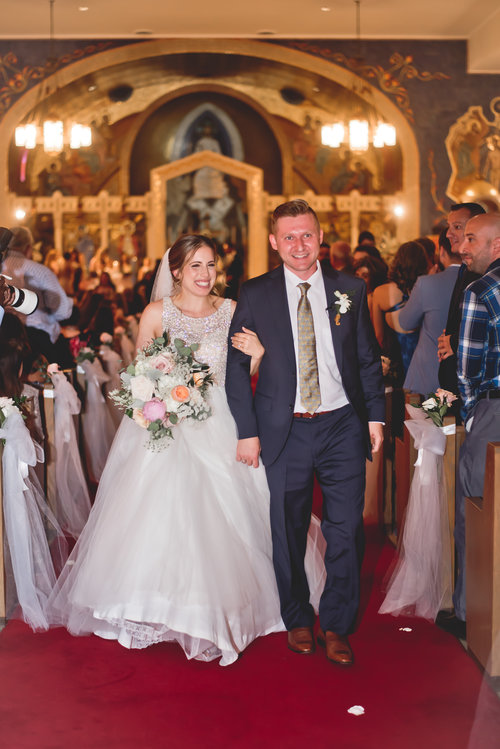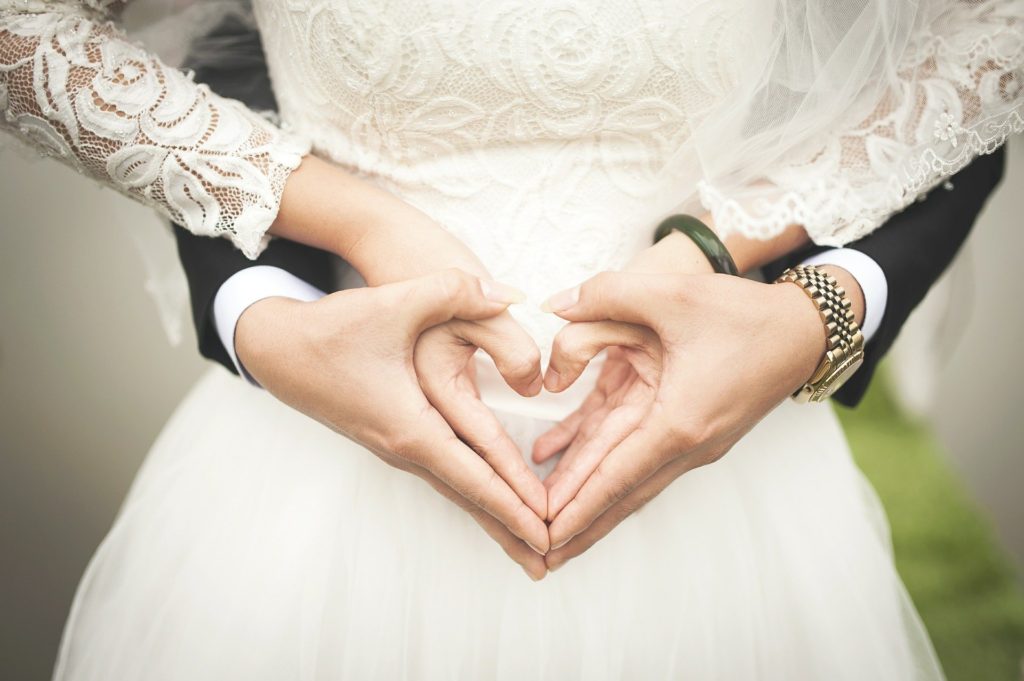ORTHODOX MARRIAGE

Marriage is one of the sacraments of the Orthodox Church
The Apostle Paul, in his Epistle to the Ephesians (5:25-32), in the passage which is read at the ceremony of the marriage crowning, gives the Christian meaning of the union between man and woman.
“Husbands, love your wives, as Christ loved the church and gave himself up for her . . . because we are members of His body.”
Thus the Holy Orthodox Church has always considered marriage in its relation to our common life in the Body of Christ. When two souls and two bodies are accepting to be united in marriage, it is “a great Mystery” and it concerns “Christ and the Church.” Christian marriage is, therefore, not simply the fulfillment of a secular or legal contract” but as a path that the couple may continuously help and guide each other to salvation in our Lord and Savior.
ORTHODOX CHRISTIAN MARRIAGE GUIDELINES
PREPARATION & INFORMATION
DATES ON WHICH MARRIAGES CANNOT BE PERFORMED

- During Great Lent and Holy Week
- On the Eves or Feast Days of Our Lord
- Baptism of our Lord: January 5-6
- Fast Period of the Assumption and Feast Day of the Assumption: August 1-15
- Feast of the Beheading of St John the Baptist: August 29
- Feast of the Holy Cross: September 14
- Christmas Fast: December 13-25
| MARRIAGE REQUIREMENTS | |
| PROHIBITED MARRIAGES AMONG BELIEVERS | |
| MARRIAGE PREPARATION SEMINARS | Marriage Preparation Seminars serve to provide engaged couples practical information regarding the elements of an Orthodox marriage in the hopes of helping to contribute to a successful marriage. This seminar is required by all couples who are marrying at the community of the Annunciation Greek Orthodox Church, Rochester, NY. The purpose of these discussions is not to determine if the couple should marry but to provide the couple the opportunity to explore the religious, social, physical, emotional and moral issues that marriage presents. The Orthodox faith sees marriage is a life-long Sacrament which requires a sacrificial love, which, as many things in life, is a learned experience, so that the couple becomes one in thought, one in action, one in flesh. In the case of Inter-Christian marriages this seminar offers insight into some of the more challenges when one spouse is not of the Orthodox faith. The couple is also encouraged to receive the Sacrament of Confession and the Sacrament of Holy Communion as part of their preparation for marriage. By doing so, they have the opportunity to bring a new vitality, a spirit and bond into their marriage that will enhance and deepen their lives. Typically the seminar consists of 5 sessions of one hour each. Each couple will receive a copy of Journey of Marriage from which the sessions are based. |
OBLIGATIONS OF THE SPONSOR (KOUBARO/KOUBARA)
What are the requirements to be a Koumbaro or Koumbara?
In the Greek Orthodox Church, the Koumbaro(a) is the official sponsor for the wedding. This means that he or she has to be an Orthodox Christian in good standing. Greek cultural tradition holds that the godparents of the groom and then the bride should be asked first, however, departure from this tradition is not uncommon so as to select a close friend or sibling. According to the Church canons, an Orthodox Christian who marries outside the Church may not serve as a sponsor at a wedding in the Orthodox Church. If you are a member in good standing at another Orthodox Church please have your Orthodox priest provide you with a Letter of Good Standing. Please consult with your priest for more information or questions regarding these policies..
How do I become a Greek Orthodox Christian in good standing?
If you are an active member of your Orthodox Christian Church, it is likely that you won’t have to worry about this. However, your priest can guide you as to what it means in your specific case. Generally, “good standing” indicates that you are current with your financial pledge to your chosen Orthodox Church and also that you abide by the canonical rules put forth by the church.
What is expected during the wedding ceremony?
The Koumbaro or Koumbara does play an important role during the marriage ceremony because their role absolutely needs to be performed by an Orthodox Christian in good standing. He or she is typically responsible for exchanging the wedding crowns, or Stefana, three times during the ceremony. In addition, the sponsor also performs the ring exchange.
What does the Koumbaro or Koumbara need to pay for?
If the bride or groom has asked you to be the Koumbaro or Koumbara, it is most certainly an honor. However, there are certain commitments that are attached to this role. Understanding what the role entails can certainly help you make a decision as to whether or not you will accept. Below is a list of the required and optional items the couple is requested to bring on the day of the Wedding:
WHAT TO BRING
REQUIRED
- Secular Marriage Licence
- Rings for both bride and groom
- Crowns /Stefana (these can be according to the couples tradition)
- Candles (one for each couple)
- Sweet red wine
OPTIONAL
- Silver Tray
- Koufetes (candied almonds)
- Gratuities for the chanter

Wedding Music and Livestreaming Packages
Music & Audio Only: $200 (Church members) / $250 (non-members)
Livestream (plus Music/Audio & Downloadable Video): $600 (Church members) / $750 (non-members)